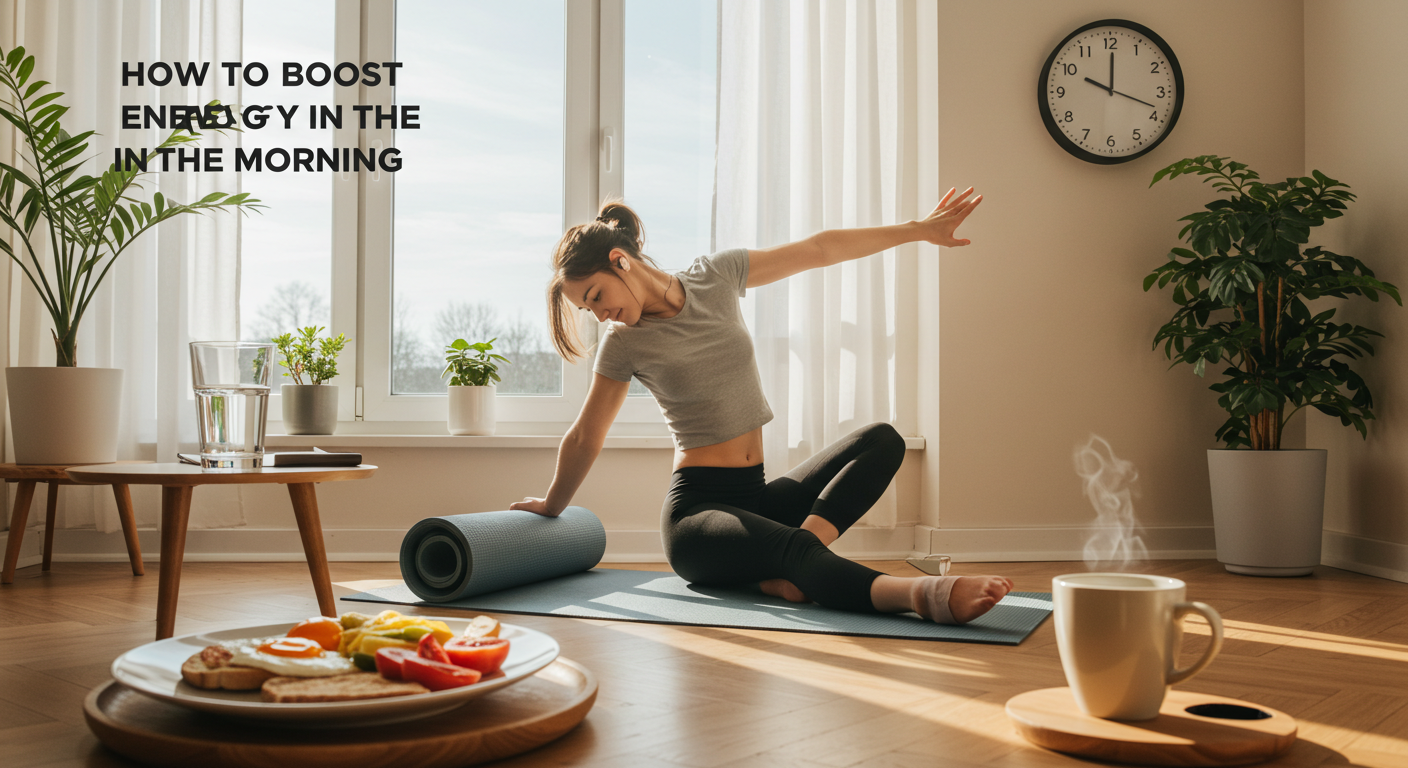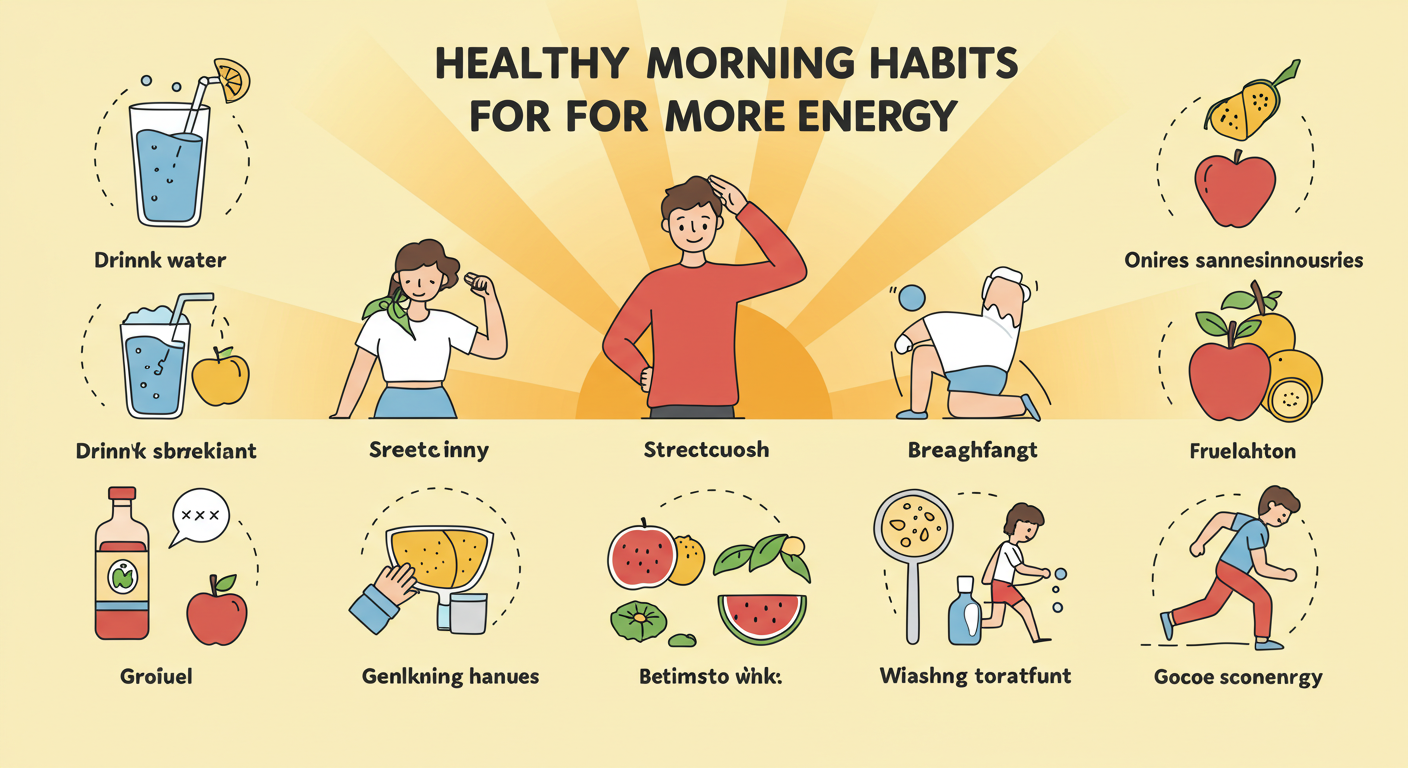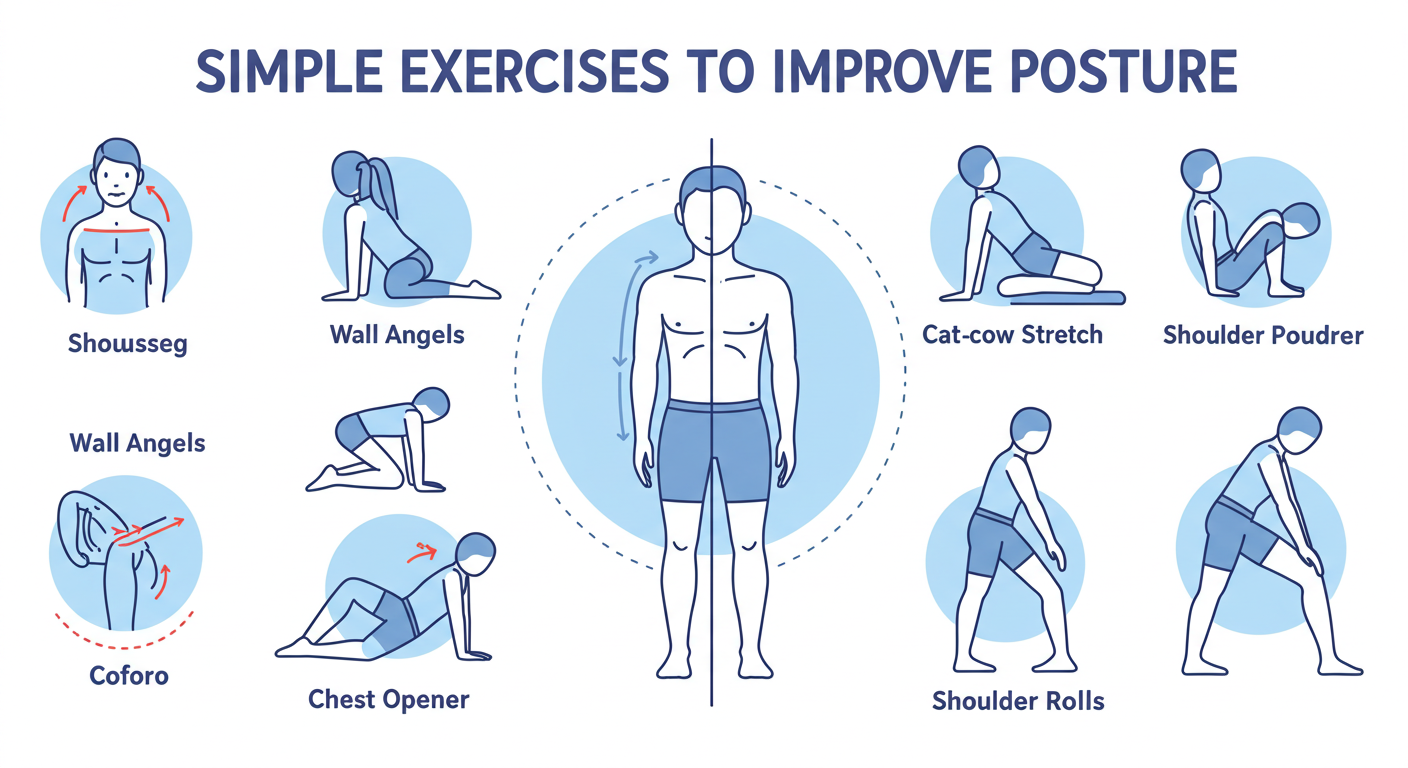Kickstart Your Day with Vitality
I’ve learned that eating a hearty breakfast each morning with high-fiber foods like hot oatmeal keeps my energy up and fatigue away, unlike people who skip it and report stress. It sticks with me longer than a sweet roll or pastry, helping prevent that hunger that can lead to low energy as the day wears on. I also love doing a downward dog with yoga, using various postures and deep breathing for exercise and meditation, which studies say is an excellent fatigue fighter to leave me feeling refreshed. Singing my favorite song with a hairbrush gives me a kind of emotional high, reducing levels of stress hormones in my body, though I save my vocal stylings for the car to avoid puzzled stares from co-workers at work.
Having a drink of water is my go-to when dehydration makes me feel drained or fatigued—I drink enough to keep my body well hydrated, checking if my urine is light-colored and I don’t feel thirsty. A quick walk to the fridge or water cooler for a refill every few hours helps me wake. Eating a handful of almonds or peanuts, high in magnesium and folate (folic acid), gives my system essential nutrients for energy and cell production, stopping me from feeling weary due to a lack. A whiff of cinnamon or peppermint from a mint in my bag can reduce fatigue and make me feel alert, though more research is needed to know if aromas actually affect my energy level.
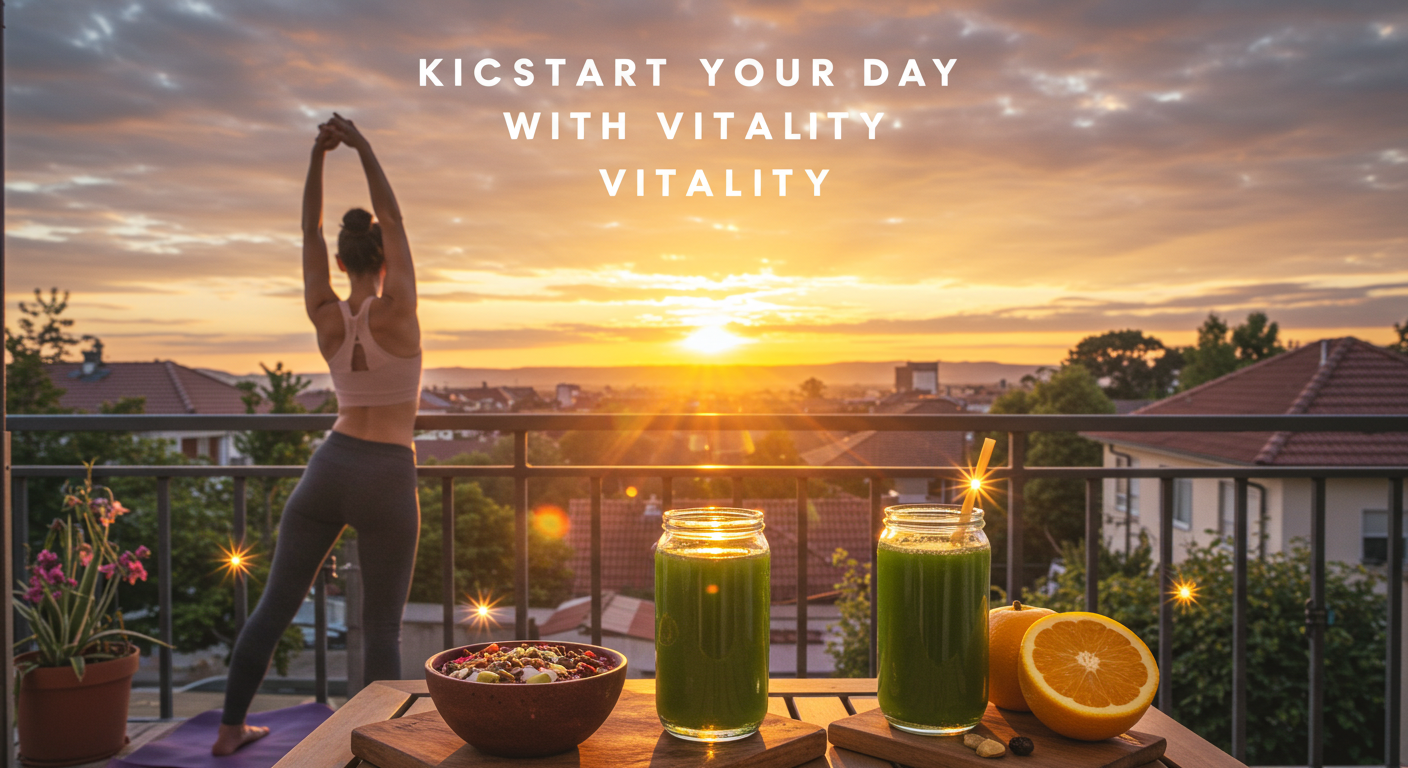
Getting moving with exercise sends oxygen-rich blood surges to my heart, muscles, and brain, so I regularly squeezing a workout in spare 10 minutes time helps keep my energy levels at their peak—I even move and pace in circles while on the phone. Letting the sunshine in by walking outside for a few minutes on a warm, clear day enhances my mood, memory, and ability to absorb new information, improving my self-esteem, or I open shades if I absolutely can’t get out. Having a bite of a snack like banana slices with peanut butter or granola with fresh berries combines protein and slow-burning carbs to give my brain fuel and maintain blood sugar levels long term when my mind feels fuzzy or my head starts to droop. Hanging out with upbeat friends who are always excited gives me a real lift, while people who are constantly negative can sap my energy—emotions are surprisingly contagious!
Rise and Thrive Naturally
I’ve found that lightening my load by tackling overwork—from professional, family, and social obligations—helps me feel less fatigue each morning. I try to streamline my list of must-do activities, set priorities on the important tasks, and pare down what’s less important, even asking for extra help at work when necessary. Exercise is my secret weapon—walking with a quick pick in pace periodically gives my cells energy to burn, circulates oxygen, and helps elevate my mood with higher brain dopamine levels, making me sleep soundly and wake up getting extra health benefits. I avoid smoking since it siphons my energy by causing insomnia—the nicotine in tobacco speeds my heart rate, raises blood pressure, and stimulates brain-wave activity associated with wakefulness, making it harder to fall asleep, while its addictive power can awaken me with cravings once I do.
If I think I’m sleep-deprived, I try getting less sleep, which might sound odd but determining much sleep I actually need reduces the time I spend in bed not sleeping, making it easier to fall asleep and promotes restful sleep long run. I avoid napping during the day, go to bed later than normal the first night for four hours of sleep, and if I feel I slept well in that four-hour period, I add another 15–30 minutes the next night, slowly keep adding sleep on successive nights as long as I’m sleeping soundly the entire time I’m in bed. Eating foods with a low glycemic index like whole grains, high-fiber vegetables, nuts, and healthy oils such as olive oil help me avoid the lag in energy that typically occurs after eating quickly absorbed sugars or refined starches, while proteins and fats with glycemic indexes close to zero keep me steady.

I use caffeine to my advantage by having a cup of coffee to increase my alertness and sharpen my mind, but I get the energizing effects judiciously, avoiding large amounts after 2 p.m. to cause no insomnia. I limit alcohol, skipping it at lunch to dodge the sedative effect that’s especially strong at midday, and avoid a five o'clock cocktail if I want energy in the evening, going for moderation at a time when I don’t mind my energy winding down. Drinking water is a must—what's the only nutrient that enhances my performance for demanding endurance activities better than a pricey sports drink? It’s water, and if my body is short of fluids, one of the first signs is feeling fatigue, so I stay getting information to increase my natural energy.
Controlling stress with talking to a friend or relative, joining a support group, or seeing a psychotherapist helps me diffuse stress-induced emotions that consume huge amounts of energy, while relaxation therapies like meditation, self-hypnosis, yoga, and tai chi are effective tools for reducing stress. I’ve learned these surprising ways to get energy, including stress relief and healthy eating, make my morning feel fortunately enhanced with nine tips, even though 14 Americans in a Gallup survey said they need energy to get things done.
Energize Your Dawn Routine
I’ve discovered that drinking water first thing in the morning really helps my body provide the hydration it needs to start the day and ward off sleepiness from mild dehydration, a common symptom that includes fatigueTrusted Source. I love someone who drinks a glass of warm water with a splash of lemon and a hint of cinnamon to stimulate my organs and systems, pushing me into a wakeful state. Next, I perform simple stretching, taking 5 minutes to warm my muscles, promote circulation, and aid waking—I often stretch instinctively, moving my arms over my head or extending my legs in bed, and sometimes perform yoga poses to awaken my body.
Quick exercise like a short brisk walk, dancing to my favorite music, or doing a few jumping jacks might sound tiring, but it stimulates my body, gets my blood flowing, and helps me feel alert without needing an intense workout. I pair this with breathing exercises, raising oxygen in my circulation with long, deep breaths or guided breathing meditation techniques, which make me feel awake and alertTrusted Source. Instead of waking to an abrupt alarm and giving in to the temptation to snooze for extra minutes that make me feel tired again, I immediately get out of bed when my alarm clock goes, trying to keep it across the room so I physically need to turn it off and start my day.
A cold shower in the morning energizes and invigorates me, unlike warm showers that tend to relax my body and mind—a 2016 studyTrusted Source says it increases norepinephrine concentration, while a North American Journal Medical SciencesTrusted Source notes cold water causes deeper tissue blood vessels to dilate, increasing heart rate, blood flow, and circulation to stimulate me wake and alert, causing me to feel energized. If I’m not up for that, a quick splash of cold water on my face produces a similar stimulating effect. I love aromatherapy with scents like brewing coffee, fresh peppermint, or lemon zest that quickly help me feel awake and brighter, and I’ve tried essential oils like rosemary, orange, clove, and more peppermint to reduce fatigue and invigorate me, inspired by an animal study in Evidence-Based Complementary Alternative MedicineTrusted Source.
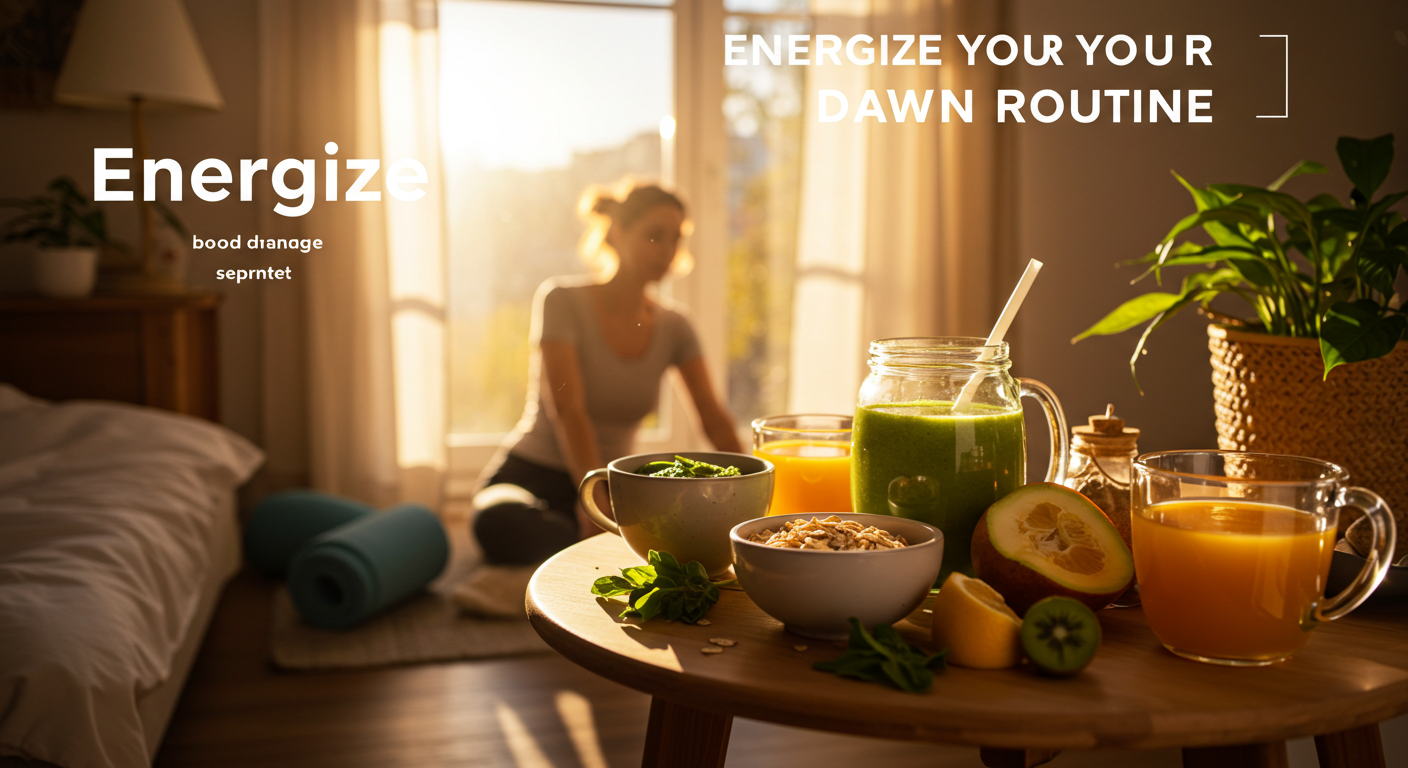
Eating a light breakfast with porridge, cereals, eggs, fruits, or vegetables helps me sustain energy levels and start my day quicker, avoiding the opposite effect of a big meal that makes me feel sluggish as my body digests. I avoid stimulants like caffeinated drinks such as coffee and tea, which give a quick boost but lead to a caffeine crash and lower energy levels after hours, per a study in Open Access Journals Clinical Trials that notes cognitive abilities drop 5 hours afterward, pushing me to consume higher quantities and affect my sleep, resulting in fatigue the next morning.
Instead, I get some sunlight during a morning walk, where short wavelength blue light stimulates my brain and suppresses melatonin, a hormone that makes me sleepy, according to a Journal BiophotonicsTrusted Source. For the best energy, I ensure good sleep habits, sleeping 7-9 hours a night, avoiding bright lights and loud noises from televisions, computers, and mobile screens, turning off bedroom lights, listening to my body’s sleep signals, going to bed and waking at the same time each day, and trying a relaxing routine like a warm bath or reading, while avoiding stimulants and exercises shortly bedtime.
Kickstart Your Morning with Vitality Hacks
I’ve learned that drinking a glass of water first thing really freshens my entire body and gets me moving by tackling fatigue, a classic symptom of dehydration, even a mild caseTrusted Source that can trigger feelings of sleepiness, changes in cognitive ability, and mood disruptions. If I find I still shake that morning lethargy, I try upping my intake of water and noncaffeinated beverages all day. Next, I stretch out my tired body with yoga because it feels good to wake, knowing overnight during REM sleep, my muscles are literally paralyzed (atonia) and reactivating them releases energy-stimulating endorphins—a bit of time for 25 minutes of morning yoga has shown to boost my energy levels and brain function.
I love to splash my face with cold water to signal a temperature change to my body, a trick that reduces sick-day absences from work according to Cold showersTrusted Source, and if getting out of bed is my main problem, I keep a spray bottle or water mist by my bedside table to lean over and mist myself without opening my eyes. A cult-favorite like Saborino’s Morning Face Mask from Japan with essential oils to activate my senses cleanses, invigorates, and moisturizes my skin in one minute, though I note that People with sensitive skin might want to avoid it. I eat breakfast to spark my energy, knowing the jury is still out on it being the important meal of the day, but researchTrusted Source says skipping it can negatively affect my ability to pay attention—Food is my fuel, so I give my body calories to put it into action at the start of the day, and if I’m working out in the morning, I remember to eat not before but after to burn more calories, boost my metabolism, and help avoid an unsettled stomach.
I take stock of my morning food choices and avoid having sugar until lunch because breakfasts aren’t created equal, and sugary items like sweetened coffee drinks, pastries, and breakfast cereals can lead to a classic blood sugar spike-and-drop that leaves me feeling drained. I pay attention to nutrition labels to see much sugar I’m getting and cut back wherever possible, keeping whole foods like apples, carrots, and oranges on hand for easy access. I drink less coffee—right, not none—since though it has plenty of health benefits, chugging a lot in the morning can indirectly contribute to increased fatigue later in the day, and Participants in a studyTrusted Source reported feeling tired the day after they consumed caffeinated drinks, so I experimenting with a reduced amount of caffeine to actually make me less tired, avoiding big mugs and purchaseing a smaller cup to help reduce the amount I drink.
I go outside to activate my brain because sunlight bumps up my body’s serotonin levels, leading to improved sleep and increased daytime energy, and a series of studies at the University of Rochester shows spending time in nature makes people feel alive—a good reason to carve a portion of my morning in the great outdoors. If going outside feels like a chore in the early morning, I adjust my curtain so sunlight seeps in while I’m getting ready to wake. I get some cardio in throughout the morning—even when I want to crawl back into bed, exercise sounds pretty unappealing but helps my body booting up, with Research showing aerobic exercise consistently correlates with reduced fatigue, so I see if I can squeeze a quick walk or bike ride, or try a longer workout for benefit, and when pressed for time, I get my body up with rounds of high-knees and jumping jacks, 30 seconds of torso twists, or a short cardio commute on my way to work.
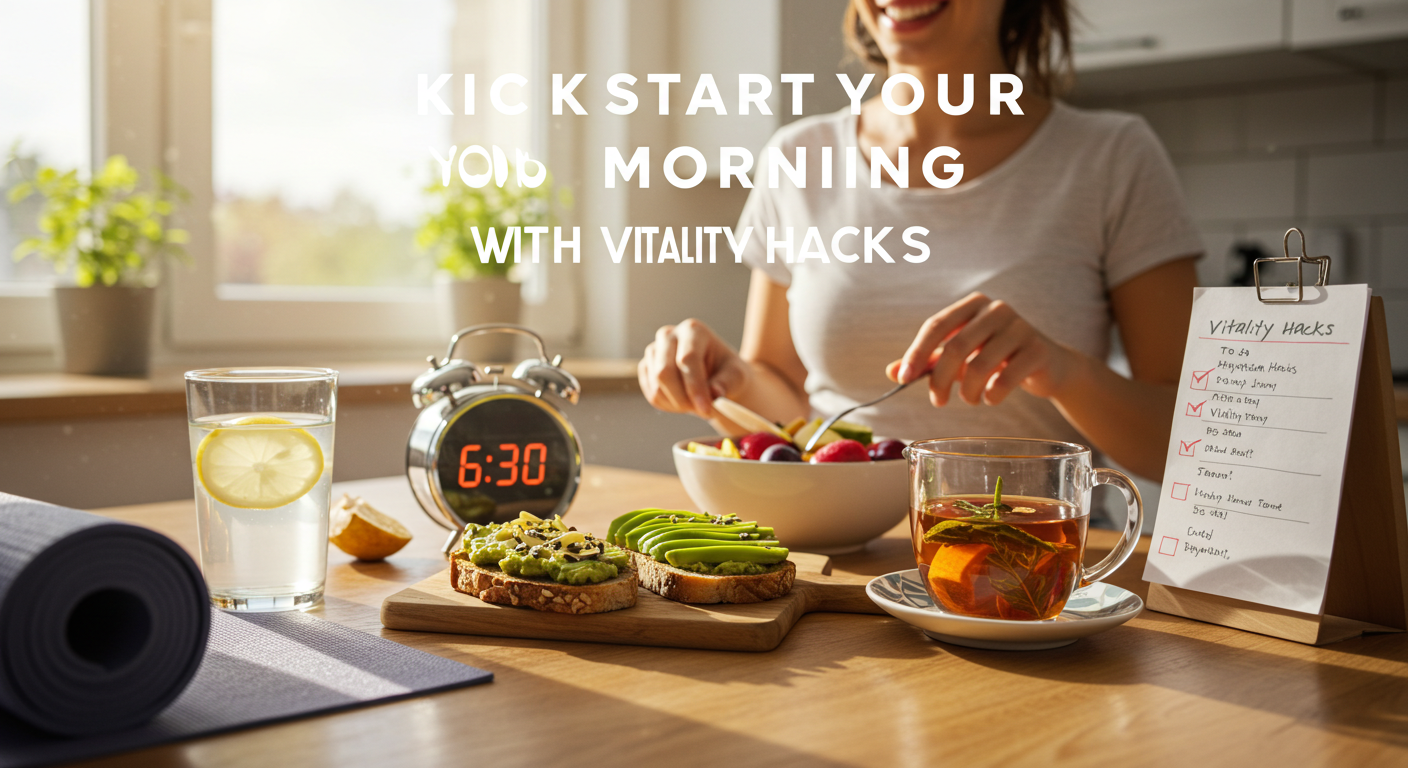
I address my stress because possible negative feelings about my job or stressors at home might be draining my morning oomph, and though I can’t fix certain situations overnight, I’ve identified them as a source of mental and physical exhaustion, so I often take action to alleviate them by streamlineing harried mornings at home making school lunches the night before or makeing time for morning meditations to create calm before my day begins. I give myself something to look forward to, like scheduling a phone call with a friend during my commute, penciling an outdoor walk on my midmorning break, or pre-making an appealing breakfast that calls me out of bed, and I let another schedule determine my earlier morning with a podcast or radio show as part of my wake-up routine.
If morning fatigue becomes a chronic problem, it might be caused by depression or anxiety, and People with depression can feel worse in the morning or feel depressed only in the morning, so the way I know is to track my mood or see a professional, digging a little deeper by asking key questions about my mental health state to reveal an underlying condition that needs professional attention. For the best rest, I ultimately practice good sleep (and waking) hygiene, knowing my bedtime habits have a profound effect on my rest, and my waking routine matters too—I probably heard of sleep hygiene with handful of best practices to help me fall asleep at night, like turning off screens an hour before bed, turning in at the same time each night, creating a comfortable sleeping environment, and Getting up at the same time each morning helps maintain my circadian rhythm, the internal biological clock responsible for feelings of sleepiness, so I Make an effort to rise at the same time every day, even on weekends, to see if I can banish the midmorning slump.
Revive Your Mornings with No-Coffee Tricks
I’ve found that eating well and regularly with healthy meals and snacks throughout the day keeps my blood sugar levels steady, avoiding the trap of skipping meals that set me up to eat much at the next meal and keep me from getting the energy I need. It’s a game-changer compared to when I used to go straight for coffee when I feel tired, especially since I’ve been looking to cut the amount of coffee I’m drinking—and I don’t even like it that much anyway! Next, I exercise with a quick walk, a great way to boost my energy as it tells my cells I need more energy, and my body rises to the occasion to provide it, triggering the release of endorphins and a chemical called norepinephrine that helps me feel awake and alert, backed by studies conducted on chemicals tied to feelings of well-being, often referred to as runner high, where norepinephrine, endorphins, and other chemicals play a role.
I try the stimulating breath technique, also known as Bellows Breath, a breathing exercise originally used in yoga that stimulates my diaphragm and tells my body to be alert. I keep my mouth closed, inhale and exhale rapidly through my nose with short, quick breaths for about 10 seconds, then breathe normally, give myself a break, and repeat the exercise several times—it’s a bit noisy but effective. To stay hydrated, I make sure to drink water all day since fatigue is a common sign of dehydration, with experts suggesting six to eight glasses of water a day, or others recommending an ounce of water for every pound of body weight—I talk to my primary care physician or care team about water intake if I have concerns about my hydration.
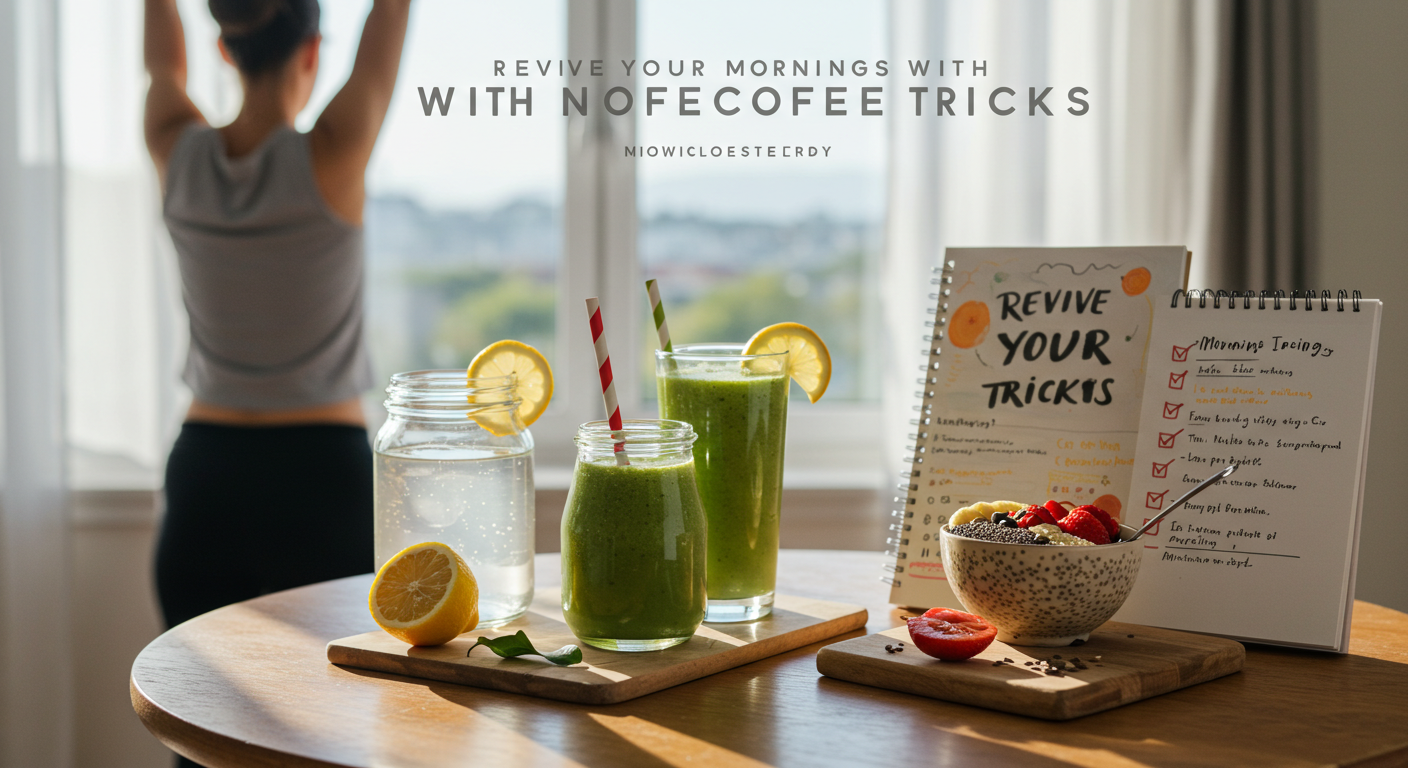
I take a power nap for a 20-minute break, which is long enough to get the restorative benefits of the first couple of stages of sleep, but I’m careful not to nap for more than 20 minutes to avoid entering a deeper sleep phase where waking in the middle can lead to grogginess—I also avoid napping later in the day to not disrupt my sleep cycle and rely on naps to make up for a full, good night’s sleep. I connect with nature because studies have shown that even small amounts of time makes people feel energized, and experts think it’s due to nature’s impact on decreasing stress responses—it’s a plenty better quick fix than caffeine, the best-known way when tiredness hits, and I get going with snacks, naps, and healthy habits that give me the jolt I need. This all started when I shares top tips from Anna B Shannahan, MD, a family medicine physician at Northwestern Medicine Lake Forest Hospital, to gain energy throughout the day with caffeine-free strategies to stay energized, ditching that cup of joe I used to rely on.
I look for foods with a low sugar index to jump-start with a snack, letting my body absorb these types of food slowly so they don’t lead to a sudden drop in energy. I try a combination of carbohydrates (carbs), fats, and proteins that’s good—carbs provide some quick energy while protein and fats keep me full and prevent burning through energy fast. My go-to is unsweetened, low-fat Greek yogurt with unsweetened granola or an apple with peanut butter, and I add greens like spinach and other vegetables to help avoid an energy slump since these foods are naturally high in fiber, which influences glucose absorption and helps my blood sugar levels stay steady, plus leafy greens contain B vitamins that help my cells make energy.






